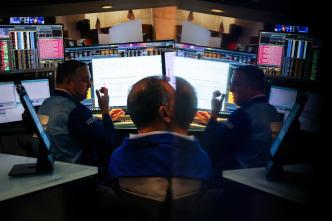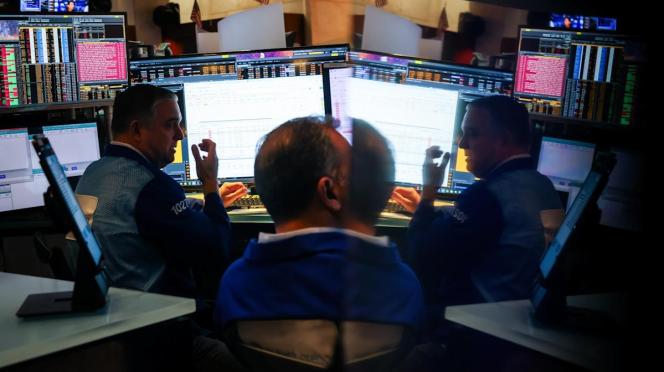Table of Contents Show
6 Hidden Risks of Buying the Dip During Stock Market Drops
When the market takes a dip, many people rush to snatch up stocks that may be temporarily undervalued or simply lower priced. While there may be some wisdom in that, experts warned that investors need to be careful about “buying the dip” in the current economic climate.
Learn More: Suze Orman: These Are the 3 Biggest Mistakes You Can Make as an Investor
Read Next: 6 Low-Risk Ways To Build Your Savings in 2025
Here are some hidden risks of buying the dip and considerations for more tried-and-true investing strategies instead.
It’s Hard To Know If It’s a Dip or a Decline
One of the biggest risks of buying the dip is knowing whether it’s an actual dip or a more significant decline, according to Adam Vega, CFP, a private wealth advisor at Avance Private Wealth “Trying to time the market involves finding the right time to get in and the right time to get out. It’s uncommon to get both right,” he said.
What often happens instead is that people end up “riding it down further, then panic sell when the position continues to drop,” he explained. Finding a stock’s bottom is challenging even for seasoned investors.
Find Out: Robert Kiyosaki Is Dumping Gold and Silver: Here’s What He’s Buying Instead
‘Cheap’ Can Be a Distraction
It’s a deeply forged American trait to look for a great deal, but sometimes buying “cheap” can distract people, Vega said, because they feel they are getting a bargain.
“While it may be the case occasionally, more often we’ll see that type of investor continue to target dipping stocks, and while one stock may rise in price, more often the others lag the broader market.”
You May Miss Out on Dollar-Cost Averaging
Instead of waiting for a market decline to invest, Alex Michalka, head of investments at Wealthfront, encouraged “regular investing rather than waiting for what seems like an attractive buying opportunity.”
The general trend of markets is to go up over a long enough window of time, and if you’re waiting for a “dip” to invest, you may miss out on positive returns until one occurs.
Instead, engaging in dollar-cost averaging, or investing a fixed amount on a regular schedule, keeps you committed to investing despite market conditions. “An advantage of this strategy is that the same amount of money can buy you more shares when prices are low and fewer shares when prices are high,” Michalka said. The result is a better return on investment even when the market is temporarily volatile.
You Can Be Tempted To Invest With Emergency Funds or Credit
A big no-no is using emergency savings to buy the dip because you think you’re going to make a killing, according to Bruce Maginn, advisor at Solomon Financial. “Buying the dip before you have adequate emergency savings is like playing with matches in a dry forest. The tragedy can be overwhelming, rapid and totally predictable,” he said.
Equally risky is buying the dip with credit cards or on margin, Maginn explained. “Worse than only losing emergency savings, you may be committing years of future income to pay off the rapidly compounding debt or to restore the resources that were forced to be sold to pay the margin loan.”
The Stock May Not Be Worth It
While buying cheap stocks may offer the potential for substantial returns in a short time frame, Maginn noted that there is often a valid reason why the stock is cheap in the first place, such as weak revenue or high expenses.
“History is littered with the once promising, but never realized, potential of a singular stock or industry. Simply look to Lehman Brothers, newspapers, Enron, the railroad industry. The proverb ‘don’t put too many eggs in one basket’ is a cautionary tale that life is as fragile as it is unpredictable and without resources to fall back on everything can be lost.”
It Can Lead To Emotional Investing
Simply hearing that the market is down can trigger emotional investing, often driven by fear, which can distort common sense judgment. “FOMO (fear of missing out) and panic both involve fear,” Maginn said. “Emotionally driven investing seldom turns out well. This can lead to overextending yourself financially.”
The best strategy is to stay the course with a solid plan, ideally constructed with a financial advisor. “There will always be a dip or a cheap stock to buy in the future, in fact, there will be many of them,” Maginn said. “Prudence is a virtue. Fear is an emotional reaction.”
More From GOBankingRates
This article originally appeared on
GOBankingRates.com:
6 Hidden Risks of Buying the Dip During Stock Market Drops
The views and opinions expressed herein are the views and opinions of the author and do not necessarily reflect those of Nasdaq, Inc.









